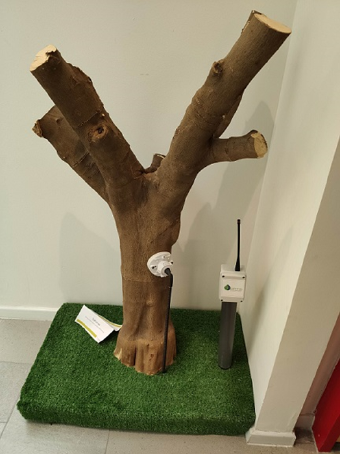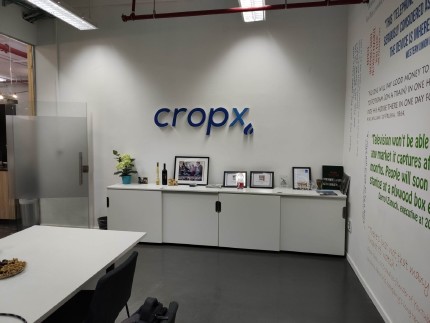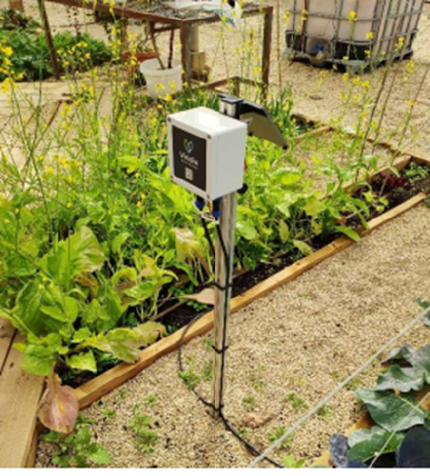Study Tour to Israel
11 exciting visits to different Precision Farming companies and start-ups. That’s the main figure resulting from the Transfarm4.0’s study tour to Israel, where our team has learnt interesting aspects and features of local agriculture:
- Shoham, extension services provided by Israel’s Ministry of Agriculture and consisting of an organization of experts in the various agricultural fields, which forms the Ministry’s professional nucleus;
- local regional R&D stations belonging to the farmers, which have the role to introduce new technologies in their farms and to guide them providing results and information about the technology;
- the great importance of precision irrigation in the Israeli agriculture, in which 85% of water comes from depuration and desalination.
From the 19th to 24th January 2020 the Transfarm4.0’s visiting group, made up of CREA’s staff and a representative from Francisco Josephinum, had the opportunity to understand how Israel is working in the precision farming field. At Transfarm4.0 we expect a positive impact on the project from the visits, as we gained knowledge on significative technological application which can be transferred to European practitioners and stakeholders.
Pilot actions may benefit from the visit thanks to the possibility to test new practices in Remote and Proximal Sensing and Big Data management. Nevertheless, a further meeting with some of the visited companies will be held in Italy with the aim of giving visibility to these companies among farmers and set-up possible collaborations with them.

Day 1
Saturas, the first company we visited, has been built on the expertise in the irrigation field of the research institute in Migav, which supports ten thousand farmers and deals with precision irrigation. Its team has developed a sensor working with inverse osmosis and capable of capturing the sap flow from the plants and measuring the SWP through a pressure sensor. It is easy to install (it takes only 5 minutes) and it penetrates the trunk of about 2-4 mm, depending on the type of crop.

Tevatronic is instead a start-up which has created a system based on algorithms, tensiometers and irrigation controllers to operate automatic drip irrigation. The system is conceived to be cheap for farmers guarantying that the soil tension does not overcome a maximum value. This is translated in a constant water supply to the plants with a more accurate irrigation. The algorithms are developed to measure the water leaching speed in the soil, returning the amount of water necessary for the irrigation turn. Day 1 ended with a visit at Netafim, a company dealing too with drip irrigation and precision irrigation systems, mainly in open fields, orchards, vineyards and greenhouses. It pioneered drip irrigation -starting their business in 1965. The company presented us a very interesting study on VRDI (Variable Rate Drip Irrigation) that took place in a vineyard in Israel, where a markable in-field variability was present. The field was divided in 12 homogeneous zones, where a variable rate drip irrigation was applied. Data from satellite was gained in order to determine the NDVI index of the field: from the NDVI values, the Kc (crop coefficient) was determined from reference data in order to estimate the evapotranspiration of the field and determine the variability of the different zones. The irrigation then was submitted depending of the water demand of the crop, increasing the amount in water deficient zones.
Day 2
Day 2 opened with a visit at Cropx, a start-up company that has developed a system integrating satellite and ground data (through a sensor that measures soil humidity, salinity, soil temperature and atmospheric temperature) to give effective predictions of crop growth and suggestions to the farmers. Predictions are made via an AI software which can forecast the water content in the soil. Four main aspects characterize the system: scalability (easy to install, no calibration needed), connectivity (which is very easy for the farmers), competitive price and accuracy of the measurements, which makes it a good solution for farmers needing. Our visit at Cropx has been of great value as we have been able to set-up a possible test of their system in Europe.

Fieldintech company has developed a smart farming platform with the aim to optimize agricultural operations. The system is based on sensors that are presented in the machineries, such as tractors, implements, etc. A software collects data from these sensors, which allow the farmers to control and supervise remotely, every farming operation. As a consequence, the farmer has the possibility to improve the performances by deciding, for example, the speed of the operations or other parameters. The company has been founded to addres the need of the farmers to know more about their operations in the field and it currently employs about 80 people. The last visit of the day was at MannaIrrigation, a subsidiary start-up of Rivulis, a company that deals with drip irrigation. The main mission of Manna Irrigation is to develop precision irrigation solutions to apply in the Rivulis systems. During our meeting, they introduced us their new system, the Manna Intelligence, a sensor-free digital platform that support precision irrigation for growers.
Day 3
On day 3, our team met the CEO of Farmentor, an online hub for top-notch agricultural consultants, with expertise on a wide range of agricultural and environmental issues. The hub provides turnkey solutions in 17 different fields of expertise, worldwide. The meeting was useful to understand better how the tech transfer from the research field to the farmer work in Israel, where R&D stations belonging to farmers cooperate with research centres. After a visit at the Agri-Technology sector of the Israel Export and International Cooperation Institute, Transfarm4.0’s study tour continued at Metabolic Insight, a start-up company that is trying to produce biological pesticides derived from secondary metabolites of the plants. Here, the work is manly focused on understanding how plants produce these molecules and trying to extract them in order to increase the self-immunity of plants. The meeting was interesting for our work as we gained knowledge on several biological solutions for the control of the major plant diseases. In particular, promising compounds seems deriving from plant exudates. Lastly, our team visited Viridix and Fruitpec.

Viridix is a start-up company which has developed a sense system for the soil water potential. The system is based on two sensors made in ceramic material, and a solar-powered gateway which communicate data derived from the sensors to the cloud system. This system allows the farmers to monitor the irrigation status of the crop and decide which is the maximum amount of water soil potential before irrigating. During the visit we had the opportunity to exchange information and brainstorming about possible experimentations of their system in the pilot actions of the Transfarm 4.0 project. Fruit Spec produces a system for the early prediction of crop yields. Their system is based on the image-analysis of hyperspectral images, with computer vision techniques and algorithms. With this system, they can count the number of fruits, bunches, etc. in plants and then calculate the estimated yield. After that, farmers can take decisions about the management of the yield, which could be, for example, reduced in order to improve quality.
